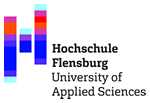

 |
The Ninth International Conferences on SERVICE COMPUTATION 2017 |
|
||||||||||||||||||||
| Details: |
ISSN: 2308-3549 |
conference contact: mp@iaria.org |
||||||||||||||||||
All tracks/topics are open to both research and industry contributions.
Special Tracks:
MALERESS: Machine Learning and Text Retrieval Applied to Service Science
Chair and Coordinator: Prof. Dr. Isaac Caicedo-Castro, University of Córdoba, Colombia
isacaic@correo.unicordoba.edu.coSERVQUAL: Service Quality
Chair and Coordinator: Ph.D., Eng. Janusz Klink, Wroclaw University of Science and Technology, Wroclaw, Poland Janusz.klink@pwr.edu.pl
Co-Chair: Prof. Ph.D., D.Sc. Eng. Tadeus Uhl, Flensburg University of Applied Sciences, Germany | Maritime University of Szczecin, PolandADASERC: Advanced Analysis of Service Compositions
Chair and Coordinator: Dipl.-Inf. Thomas Prinz, University of Jena, Germany Thomas.Prinz@uni-jena.de
Tracks:
Trends in service computation
Cloud services orchestration; Context-aware adaptation of service-based systems; Service computation in Smart Cities environments; Virtualized services in the networks ( core, at aggregation points, and at the edge); Cloud on-the-fly services; Microdata service centers at PoPs; Open-source infrastructure as a Service; Event-Driven Service-Oriented Architecture (ED-SOA or SOA 2.0); Service computation for smart vehicles; Service composition and orchestration in the Internet of Things (IoT) and Internet of Drones (IoD) systems; Service composition based on granularity computing; Visualization as a service; Enterprise scale service computation; Agent-based modelling as a service; Decentralized Web service composition; Service composition for collaboration support
Challenges in service computation
Continuous adaptation of Service-based systems for mobile environments; Concurrent negotiations for customized cloud service quality; Dynamic QoS monitoring in Service-oriented systems; Service replication process in distributed environments; Contract monitoring service; Dynamic testing; Prediction-as-a-Service; Scalable QoE prediction for service composition; Architectures for scale computing; Scalable and cost-efficient cloud storage; Strategies for Quality-aware service selection; Service contracts for risk prediction; Decentralized Web-service composition; Context-aware for Web-service clustering; Multi-tenant service composition; Collaborations through service composition; Reputation for Service composition in the Internet of Things (IoT)
Service innovation, evaluation and delivery
Service requirement validation; Service design; Service deployment; Service delivery; Service lifecycle; Service knowledge and service innovation; Model-driven service engineering; Knowledge-intensive services; Risk management in services management; Service testing and validation; Service consumption and delivery outcome; Quality of service; Quality of experience; Quality of service impact; Service audit metrics; Service innovation; Service bundling; Service research; Service composition; Collaborative services; Service business models; Service personalization; Security and trust in services
Ubiquitous and pervasive services
Foundations of ubiquitous and pervasive services, networks and applications; Specification, discovery, and matching of ubiquitous and pervasive services; Computing, orchestration and harmonization of ubiquitous and pervasive services; Technologies for modeling, designing, and testing ubiquitous and pervasive services; Service-oriented agent-based architectures, protocols and deployment environments; Integration and deployment of ubiquitous and pervasive services; Ubiquitous and pervasive services in peer-to-peer and overlay networks; Ubiquitous and pervasive services in mobile networks and sensor networks; Ubiquitous and pervasive services in unmanned air, underwater, and ground vehicle networks; Adaptive and self-adaptive ubiquitous and pervasive services; Context awareness, adaptation and management of ubiquitous and pervasive services; Security, trust and privacy management in ubiquitous and pervasive services; Semantics and ontology for ubiquitous and pervasive services; Web services and middleware support for ubiquitous and pervasive services; Energy management and harvesting for network with ubiquitous and pervasive systems; Case studies, lessons learned, experiments, simulations and trials for ubiquitous and pervasive services
WEB Services
Basics and formalisms on Web services; Web x.0 concepts in Web services evolution in this framework; Methodologies for specification, deployment and enhancements of Web services; Modeling and composition of Web services; Discovery, matching, and integration of Web services; SLA/QoS/QoE in Web services (privacy, security, performance, reliability, fault tolerance); Testing and validating Web services; Publishing, discovery, tracking, and selection of Web services; Web services lifecycle management; Semantics and Ontology in Web services; Cloud computing, service-as-a-software and on-demand Web services; Mobile and intermittent Web services; Web services-based services, applications and solutions; Web services standards and formalizations; Service-Oriented Architecture (SOA) infrastructure and middleware
Uncertain Web Services
Uncertainty-aware QoS; Uncertainty in Web service compositions; Discovering services under uncertainty; The uncertainty-enabled model web; Trust assessment for Web services under uncertainty; Uncertainty in chained Web services; Uncertainty propagation; Representing and simulating uncertain environmental variables; Quantifying, managing and communicating uncertainty; Uncertainty Markup Language (UncertML)
Skyline Services
Skyline services composition; QoS-based skyline selection; Dominant Web services; Spatial skyline computation; Selecting dynamic skyline services; Skyline metrics and criteria; Parallelization of skyline computation; Progressive skyline computation; Skyline optimization for Web service composition; Skyline applications (Peer-to-Peer, Demographic, etc.); Benchmarks for skyline computation
Society and business services
Public (mail, schools, banking, financial, personal, real estate, health, government, insurance, hospitals, transportation, library); Utility (broadcasting & cable TV, printing & publishing, energy, Internet, hotels, retail, waste management, security, rental); Entertainment (advertising, casinos & gaming, recreational, restaurant, travel); Business (communications, specialty, technology, planning, supply chain management, marketing, design, wholesale distribution); Business process management (business knowledge, business protocols, service level agreements, business licensing models, business financial models, and business advertising models
Service measurement
QoS metrics and indicators; data quality; validity of models; uncertainty analysis; SLA monitoring; measurement of business objectives; dynamics of monitoring; quantification of trust and trustworthiness; propagation of measurements; triangulation; expert judgments; aggregation of measurements
Empirical methods in system and service management
Empirical evaluations; method and model validation based on empirical trials; case studies; experiments; guidelines and best practices for structured empirical research; validity and reliability of empirical research; systematic reviews; metrics; measurements; expert judgments; case study design; reporting of empirical research








